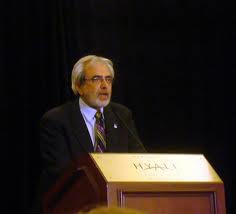Can a short story be a valid form of research or scholarship?
I’ve just finished reading an article in an academic journal that was more like a good short story (Bochner 2012). The characters were engaging, there was a coherent and intriguing plot, and the themes (the significance of the dream world, living life with authenticity, fears associated with moving beyond the familiar) are relevant for us teachers.
Furthermore, the article was written by a scholar.
I discovered, when I searched for Arthur Bochner on the web, that he has written four books, scores of articles, won numerous awards, and is currently Distinguished University Professor at the University of South Florida. There’s no question that the article has been written by someone who has been deeply involved in scholarship for many, many years.
But is the article itself scholarly? It tells the story of Art (the author) seeking the help of a therapist to make sense of a gnawing feeling that his successful career as a quantitative researcher is leading him to live an inauthentic life. It begins:
I walk swiftly through the open door of my therapist’s office and take my usual position on the soft, black leather couch sitting against the windowless wall. For a client like me, a therapist’s couch is a significant symbol drenched in meaning, carrying the weight of history. True to form, this one is no ordinary couch. You don’t sit on it, you sit in it. The couch prompts a memory of the bean-bag chairs of the 1960’s—a prominent hippy symbol of freedom. Bean bags looked cushy and comfortable but turned out to make your butt sore and your back stiff, a reminder that freedom comes at a price. I can’t help wondering why Dr. Milton chose this couch. Shouldn’t a therapist’s couch provide something more than an illusion of freedom?
Can something which reads like a short story, which in many ways is a short story, be itself scholarly? Is this research?
I’m particularly interested in these questions because I’ve been experimenting with ways of writing about educational issues which might find some kind of home in the academic world. I enjoy writing. I like to use some of the techniques of what Tom Barone has called ‘literary non-fiction’ (Barone 2000). I want to find ways of including, in what I write about teachers and students,
actual felt process of life, the tensions interwoven and shifting from moment to moment, the flowing and slowing, the drive and directedness of desires, above all the rhythmic continuity of our own selfhood … (Susanne Langer, quoted in Barone 2000).
***
Barone, T. (2000). Aesthetics, politics, and educational inquiry. New York, Peter Lang. Bochner, A. P. (2012). "Between Obligation and Inspiration : Choosing Qualitative Inquiry." Qualitative Inquiry 18 (7): 535-543.





